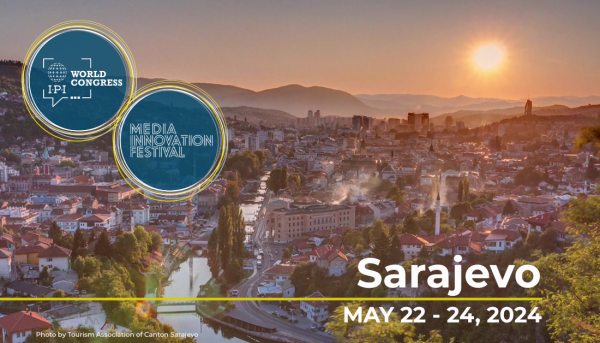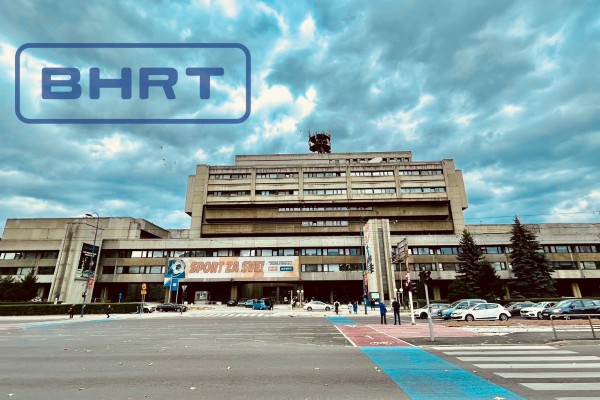The International Press Institute (IPI) and its affiliate, the South East Europe Media Organisation (SEEMO), today expressed concern at claims that political pressure led veteran Turkish columnist Hasan Cemal to resign this week.
Cemal resigned from Milliyet after the daily newspaper declined to publish the first column he authored, a translation of which appears below, following a two-week suspension for voicing support for the newspaper’s publication of the “Imrali minutes” earlier this month.
The minutes – taken during a meeting between lawmakers of the pro-Kurdish Peace and Democracy Party (BDP) and the imprisoned leader of the outlawed Kurdistan Workers’ Party (PKK), Abdullah Ocalan, who is negotiating a potential peace deal with Turkey’s government – purportedly describe Ocalan’s thoughts on the peace process.
The release has angered Turkish nationalists as well as the government of Prime Minister Recep Tayyip Erdogan, who strongly criticised the publication saying: “If this is [journalism], then, down with your journalism!” Erdogan also cited passages from a column Cemal wrote and condemned the journalist, but without mentioning his name.
Local media have reported allegations that calls from the prime minister’s office to the newspaper’s owners led directly to pressure by Milliyet proprietor Erdogan Demiroren on Editor-in-Chief Derya Sazak – who took part in the earlier decision to publish the minutes – to fire Cemal.
The journalist instead was given an involuntary two-week “cooling off” period. When he submitted his thoughts on the relationship between media, business and government in Turkey in his first article back, Sazak – who took part in the decision to publish the Imrali minutes – declined to run it. Cemal then resigned rather than submit a new piece.
Cemal told IPI that the decision not to run his column came from the paper’s ownership, the Demiroren Group of Companies*, which also holds energy interests. However, he stopped short of blaming the prime minister, noting that Erdogan’s office reportedly denied charges of having pressured Milliyet’s owners.
Other local sources, however, rejected that denial. IPI Executive Board Member Ferai Tinc, former head of IPI’s Turkish National Committee, said that Cemal’s departure was the latest manifestation of a trend across Turkish media in which publishers and editors are bowing to government pressure on editorial content in a manner that affects the public’s ability to have access to information and multiple opinions.
“This is the latest phase in a process which, from the beginning, has been in direct violation of freedom of the press,” she said. “What we have here is a decision completely shaped by the prime minister, by his threat aimed directly at the owner of the newspaper, and this event is a typical example of the climate of self-censorship in the country.”
Cemal, a former member of IPI’s Executive Board and the board of its Turkish National Committee with 45 years of experience in journalism, told IPI: “If I can’t criticise the situation, that is a big blow for freedom of expression in Turkey.”
***********************************************************
*This statement was corrected on March 21, 2013, to clarify that Milliyet is owned solely by the Demiroren Group. A previous version incorrectly stated that the Karacan family also held an ownership interest.
***********************************************************
Cemal provided IPI with a full translation of his article that Milliyet declined to run, which appears below. The opinions expressed are those of the author and they do not necessarily reflect the views or opinions of the International Press Institute (IPI).
As I revisit my column, a few words on Journalism…
This column has remained empty for two weeks since Prime Minister Erdogan blasted Milliyet in Balikesir by saying “Down with your journalism” because of the report by Namik Durukan on the minutes of the meeting with Ocalan on Imrali Island.
Tayyip Erdogan targeted me in his speech as well. He did not pronounce my name but he directly quoted my words defending the report and blasted me.
I was underlining one of the fundamental principles of my profession in those words. I argued that journalism and ruling a country are separate issues, and underscored the dividing line that set them apart.
This was what I was saying in a nutshell: In democracies, politicians rule the country and reporters report!
This is how it works in democracies. It is freedoms and the universal principles of journalism that define the borders of journalism, not some national or non-national criteria drawn by the perspective of the political power.
The universal principles of journalism definitely include “responsibility”, even though it is very hard to define it. However, this sense of responsibility does not necessarily and does not “have to” overlap with the type of responsibility the government defines.
In democracies, journalists and the government are at times at odds with each other. They clash. This is a very frequent case in democracies. Relations become so tense that they are sometimes about to collapse. American democracy is full of interesting and colourful examples of such cases. But for the purpose of this article, I will skip that part.
I do not intend to get into the details of the “incident” between Ankara and Milliyet after the report on the minutes of the Imrali meeting for the time being. I do not want to personalise the issue. This is not the first time that has happened to me. Several colleagues of mine have been down this road before and they unfortunately continue to go through the same road.
It is necessary to mention one point. Relations between media and government have always been problematic in Turkey. Because political power groups have always tried to control the media and the community of journalists, quite often with the red lines that they have themselves drawn. They have exerted pressure through economic, political and legal instruments. This has always been the case.
The economic interests of media moguls outside the area of journalism have given the political power groups the upper hand. In other words, the dependence of media moguls on Ankara for their economic interests or the excessive power of Ankara on economic issues, coupled with the second-class judiciary in Turkey, have made it easier for the political power elite to manipulate the media.
And then there is the perspective of media bosses on journalism….
It was in early 1990s. I was the chief-editor for Cumhuriyet daily. One of the big names of the Turkish business community had asked for my advice as he intended to launch a newspaper. I asked him: “Why do you want to launch a newspaper? Do you want to have a ‘successful newspaper’ as well as a successful fridge and a TV factory and a bank in Europe? Or do you want to launch a newspaper in order to create a new power group in the eye of the political power as opposed to your rivals and competitors? Do you want to protect your own business interests or to have a ‘successful newspaper’? What is it that you want?”
I have written on this before. But the question posed above is still valid today. The faulty and defective structure of the relations between Ankara and media is still knotted around that question.
But not only that. We have to keep in mind the roles of the community of journalists, particularly the Journalism elite that derail the media-government relations.
Chief editors and major columnists have failed to defend journalism against political power groups and against their bosses and even sometimes in spite of their bosses. They have not been able to form strong professional platforms to do this.
I would like to underline one point here. I am not spared from bad grades throughout my journalism career for 45 years. I will not elaborate on this and I don’t want to.
In order for the media-government, government-journalist, journalist-boss relations to fall into their relevant places, it goes without saying that the community of journalists absolutely have their own responsibility. We should not ignore the following:
To sit back and watch as if hands were tied and held back or as if not caring, an indifferent attitude or a “no need” approach have played an important role in dooming democracy and the state of law to a second-class position in this country.
The higher we raise the flag of journalism, the more we own up to the independence and freedom of our profession, the more we insist on “walking the line of journalism” in the words of Milliyet’s brilliant chief editor, Derya Sazak, the higher we will set the bar for democracy and the rule of law in this country.
This issue becomes more important at this point of time when Turkey is going through a critical period as far as the Kurdish issue is concerned. The higher we set the bar for a democratic state and a state of law, the wider the door for peace will open.
The better we do our profession as journalists, the better the journalist, the media boss, the politician stick to their respective professions, without any doubt, all of us will be more relieved and will be at ease, with democracy and peace fitting in their right places.
As a journalist who has been crazy about the profession for long years, despite a lot of plights and negativities, I keep my hopes high for the future.
My thoughts and feelings have been strengthened by what I have witnessed for the last two weeks.
Now, let’s get back to work and do our job better.
I cannot help thinking that I could have penned a better article as I conclude my first piece after an obligatory two-week break.


